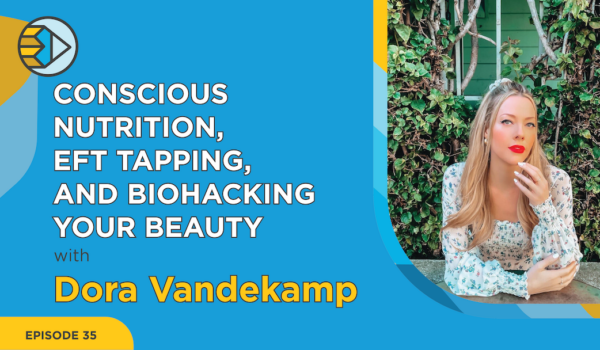
EP 26: Most Common Academic Words To Improve Your Academic Writing (Part 4/4)
Episode 26 is the final episode in the series investigating commonly used academic words. Tune in to learn along with Cath Anne as she wraps up the series with 5 more academic words you can add to your tool box!
Looking for study tips, help with essay writing, or advice on how to be a better student? Welcome to The Homework Help Show, a weekly show where we teach, assist, and offer valuable insights for student life. From study hacks to writing tips, discussions about student mental health to step-by-step guides on academic writing and how to write a resume, we’ve got you covered. Want your questions answered? Write them below or join the conversation on social media using the hashtag #askHHG
TRANSCRIPT:
Cath Anne: [00:00:05] How’s it going? It’s Cath Anne, weekly host of The Homework Help Show and Top Writer with Homework Help Global. This week we continue our video series in which we discuss common academic words to incorporate into your academic writing. Make sure you check out our other videos on the same topic for more words to incorporate into your writing.
Cath Anne: [00:00:27] This is our fifth and final episode in this series, so make sure to check out the other ones and join along. This series will help you to expand your academic vocabulary using the Academic Word List or the AWL, which is a list that’s readily accessible on the web. This core academic vocabulary is used by writers in many subject areas. Learning vocabulary from the AWL will help you to improve your comprehension of academic texts. It will also help you to write assignments in academic style and impress your professors. So, we have done an overview of all of the words on the AWL.
Cath Anne: [00:01:23] Also, feel free to come back to these videos when you feel it is necessary or you need a reminder of the various words we discuss. One way of learning new vocabulary is to learn a new word from the list every day. But, it is also better to learn the words and context so that you will understand how they are used so that means learning them in the context of a sentence.
Cath Anne: [00:01:50] Before we jump into the content this week just a quick reminder to join me on live on Instagram and Facebook live every Thursday at 7:00p.m. Eastern Standard Time. We will be doing a live Q and A and study session. So, bring your homework and any questions that you may have and we will try to help you out for with any assignments that you do have.
Cath Anne: [00:02:15] OK. So, let’s get into the content. Just a reminder that we encourage you to pause the video at any time to take notes. This will help you to retain the information that we discuss.
Cath Anne: [00:02:27] So, this week we will wrap up this series by giving you another five common academic words. In this session like the other sessions we will be discussing the word, the part of speech (whether it is a noun, verb, or adjective), and the meaning of the word. Then, of course, we will put the word into a sentence, so you can get a sense of the word in context. This is to get the meaning of the word, but also to retain the information and memorize the word.
Cath Anne: [00:03:02] Let’s begin. So, the first word for this week is occur. Occur is a verb. It means when something happens or takes place. So, for example, “We could say tourism only occurs during the summer in the small town.” Summer is the only time tourism occurs because it is such a small town. That is when tourism happens or takes place. Occur.
Cath Anne: [00:03:46] The next word is potential. Potential can be a noun or an adjective and we will discuss both. It means something that could possibly happen but might not come to pass.
Cath Anne: [00:04:25] For example, sing it as a noun, we could say, “He is an intelligent student and he has a potential to get into medical school.”
Cath Anne: [00:04:36] Getting into medical school is something that is likely to happen because he is an intelligent student but, it might not come to pass. He has the potential. Used an adjective we could say, “Many potential customers are waiting for a fall in prices before buying a house.” So, in other words, the customers are potential because they may be customers, but it may not come to pass that they are customers. So, in this case the word potential is an adjective because it is describing the word customers.
Cath Anne: [00:05:19] The next word we have this week is primary. It is an adjective. This means the first of importance. There are a couple of synonyms for primary such as chief or principal. It just means first of importance, first in line for importance. So, we could say, “The primary reason for getting an F on the exam was a lack of studying.” There were other factors involved a lack of sleep, busy at a job family issues, but the primary issue was a lack of studying.
Cath Anne: [00:06:19] Number four is the word range. This is a noun.
Cath Anne: [00:06:37] This refers to the upper and lower limits that a number, an amount, or type of something may vary. So, for example we could say, “The price range for our car is between 2000 and 4000.” 2000 is the lower limit and 4000 is the upper limit and the space between is in the range.
Cath Anne: [00:07:07] Number five this week is significant. Possibly one of my favorite words. It is an adjective that means something of importance or something of consequence. So, for example we could say, “Taking the time to study is significant in helping you to attain a higher grade.” So, the process of studying is a factor that is significant in you getting a good grade on your test or in your academic career.
Cath Anne: [00:08:02] So, there we have it folks. We have come to an end of our 5-session series on academic words you should know. If you liked this lesson and the other lessons and you learned something new, feel free to hit the thumbs up button below and remember to subscribe to our channel.
Cath Anne: [00:08:24] That is it for this week of The Homework Help Show. Please join us again for some more academic content. Thank you for joining me and I hope this was of benefit to you. If you would like to gain access to any more of our content or you want to find out more about Homework Help Global, please visit us on Facebook, Twitter, LinkedIn, Instagram, Google Plus, of course, here on YouTube. Medium where we have a lot of really informative blogs on student lifestyle. If you’re more of a podcast person feel free to check us out on SoundCloud, Anchor, iTunes Apple Podcast and Google Play Music and you can access any of these episodes in podcast format. All you have to do to find any of our content is just search Homework Help Global and you’ll be able to find us. Again, if you have any writing or homework questions, please remember to join me live every Thursday at 7:00 PM Eastern Standard Time on Instagram and Facebook live. We will be doing a live question and answer session as well as a homework study session. Again, I hope this is a benefit to you and all the best. Have a great week. Take care.
Share:

